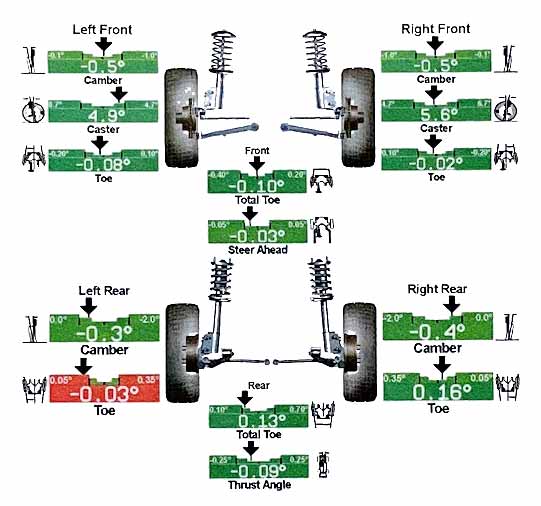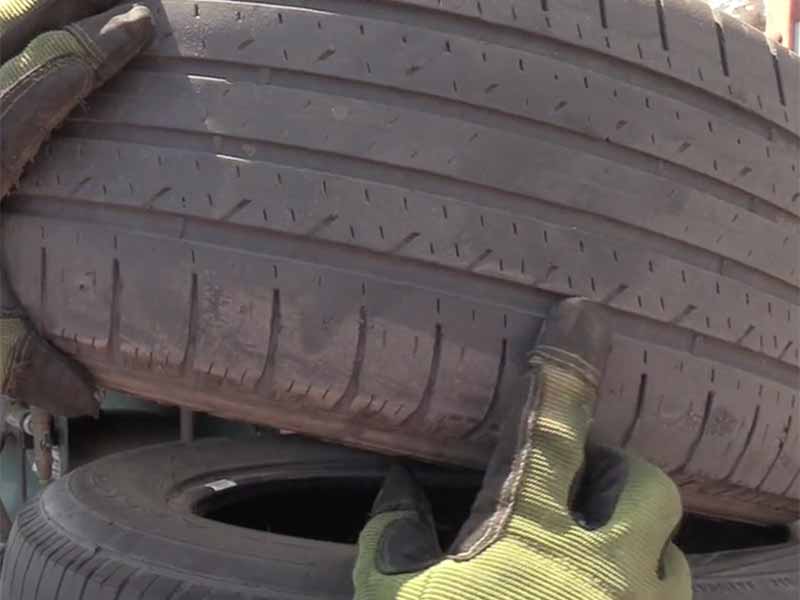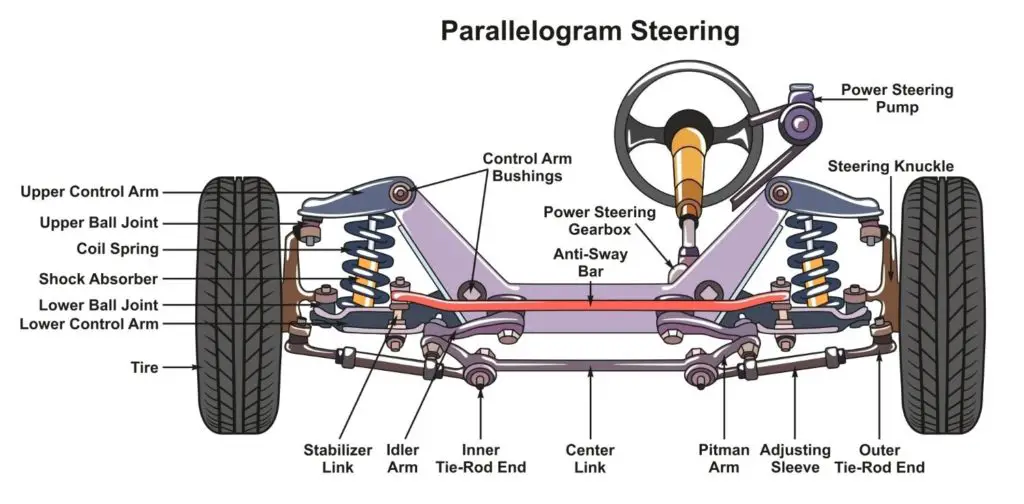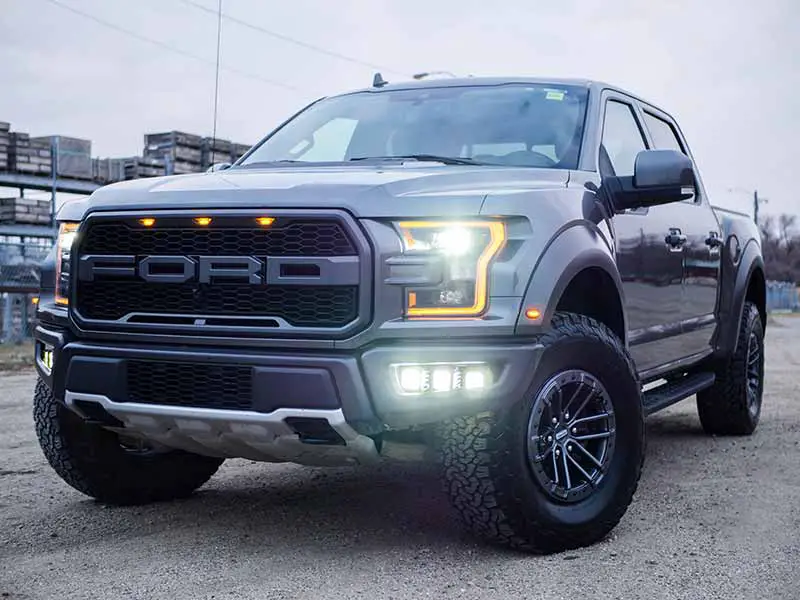If you’ve recently installed a leveling kit on your truck, it’s important to consider the impact it can have on your vehicle’s alignment.
Alignment After Leveling Kit
Your wheel alignment after leveling kit installation can be slightly misaligned or significantly out of alignment depending on the type of leveling kit you purchased and the amount of lift to the front suspension.
Not having a front-end alignment performed afterward can cause uneven tire wear and premature wear to ball joints, shocks or struts, and other suspension components.
Installing a leveling kit is a popular alternative to a lift kit, but it does present some unique challenges and raises a lot of questions.
Let’s take a closer look.
Informative Video About Leveling Kits Although A Bit Rambling.
Do Leveling Kits Affect Alignment
Alignment refers to how your wheels are angled and interact with the road. When your alignment is off, it can cause uneven tire wear, reduce fuel efficiency, and even affect the handling of your vehicle.
That’s why getting an alignment is important after installing a leveling kit.
Is Alignment Necessary After Leveling Kit
A leveling kit can put more stress on your suspension components. When you raise the front of your vehicle, it can cause your suspension to work harder, which can lead to increased wear and tear. Over time, this can result in the need for suspension repairs or replacements.
It’s important to choose a high-quality leveling kit and have it installed by a professional mechanic to minimize the impact on your tires and suspension. You should also get regular tire rotations and suspension inspections to catch any issues early on.
Quality leveling kits will include more than just a shim. Depending on the amount of front suspension lift, they may also include shock extension mounts, a camber kit, control arm extensions, and other parts that will allow the stock suspension components to remain aligned properly.
A kit tailored to your truck’s unique suspension geometry will ensure it is possible to align the wheels and tires properly. Without a quality kit, it may not be possible to align the suspension to the vehicle manufacturer’s specifications.

Driving Without Alignment After Leveling Kit Installed
If you don’t get an alignment after installing a leveling kit, it can lead to some issues with your truck, such as uneven tire wear. When your wheels are not correctly aligned, it can cause your tires to wear down unevenly, which can lead to the need for new tires much sooner than expected.
Also, driving without an alignment can affect the handling and stability of your truck. When your wheels are not aligned, it can cause your truck to pull to one side or the other, which can be especially dangerous at high speeds.
It’s important to get an alignment after installing a leveling kit to ensure that your truck is safe and handling at its best. It’s an important service that can save you money in the long run by preventing premature tire wear and other issues with your truck’s suspension.
How Soon After Leveling Kit Install Do I Need Alignment?
Unlike new springs, leveling kits don’t need time to settle. Springs will slowly compress to their final natural ride height after a few hundred miles, but leveling kits don’t have this issue. This means you can have a wheel alignment performed immediately after installing your leveling kit.
It’s best to have an alignment after leveling kit installation as soon as possible. But it isn’t the end of the world if you need to wait a few weeks for some reason. The longer you wait to perform an alignment service, the longer you’ll expose your tires to uneven wear and your suspension to stress at the pivot locations.

Quality Leveling Kit
Alignment Problems After Leveling Kit Installed
Wheel alignment refers to specific angles your tires have with each other and the road surface. Many people don’t realize that when aligned properly, your tires don’t actually sit straight up and down and forward and back. They have slight adjustments that improve handling and stability.
- Camber: Camber refers to the angle of your wheels when viewed from the front or rear of your truck. If your wheels have too much positive or negative camber after installing a leveling kit, it can cause uneven tire wear and affect the handling of your truck.
- Caster: Caster refers to the angle of your steering axis when viewed from the side of your truck. If your caster angle is off, it can cause your truck to pull to one side or the other and affect your steering.
- Toe: Toe refers to the angle of your wheels when viewed from above. If your wheels have too much toe-in or toe-out, it can cause your tires to wear down unevenly and affect the handling of your truck.
- Thrust angle: Thrust angle refers to the angle of your rear wheels with the centerline of your truck. If your thrust angle is off after installing a leveling kit, it can cause it to pull to one side or the other and affect your steering.
Leveling Kit Causing Tire Wear
Each leveling kit should be uniquely designed for the needs of your truck. Cheap kits may not include all of the necessary hardware to ensure your front suspension can remain properly aligned. But even the most complete kits will cause uneven tire wear if not aligned after it’s installed.
Any time you work on your suspension in any way that can affect the alignment, you should have a new wheel alignment service done.

Camber After Leveling Kit
Different kits and different trucks will have different issues. Most trucks will have problems with toe-in after leveling.
Some will have camber problems, while others will have the camber remain virtually unchanged. This doesn’t mean that you don’t need to adjust the camber on most trucks. You’ll still want to have it checked.
Camber plates may be necessary to help keep the camber in proper spec. Without adding camber plates, the range of camber adjustment isn’t large enough to compensate for the change.

Does A Leveling Kit Affect Steering?
Many people report the steering wheel effort or feel different after installing a leveling kit. Cheaper kits that don’t include all of the necessary hardware to keep your truck in correct alignment can significantly change the forces on the tires and suspension, which can be felt through the steering wheel when turning.
The new ride height changes the dynamics of the steering geometry and will make the steering feel different even with quality kits. This is normal, but alignment should keep these issues to a minimum.
Do Leveling Kits Wear Out Ball Joints?
It’s important to purchase a high-quality leveling kit to ensure it doesn’t put too much stress on the ball joints. It’s common for cheaper kits to accelerate wear and tear on ball joints since they’re under more stress if the suspension is pushed further to its limits under normal driving conditions.
Increasing front suspension ride height needs to be accounted for in all of the suspension part connections that pivot.
How Does A Leveling Kit Work?
A leveling kit is designed to raise the front of your vehicle to match the height of the rear. This is typically done by installing spacers or blocks between the frame and the suspension, which can provide anywhere from 1 to 3 inches of additional height.
A leveling kit can help eliminate the factory “rake” on many trucks by raising the front of your vehicle. This can give your truck a more aggressive stance and improve its off-road performance.
In addition to improving the look and performance of your vehicle, a leveling kit can also provide some practical benefits. By raising the front of your truck, you can increase ground clearance and reduce the risk of scraping or bottoming out on rough terrain.
Why Are Trucks Not Level?
Here are a few reasons why trucks are not level:
- Weight distribution: Trucks are designed to carry heavy loads in the bed, and the engine and transmission weight is also located in the front. As a result, the truck’s rear is designed to sit lower to compensate for the weight distribution and prevent the front end from sagging.
- Aerodynamics: A slight downward angle on the front of the vehicle can improve aerodynamics and reduce wind resistance, which can improve fuel efficiency at high speeds.
- Styling: Many manufacturers intentionally design their trucks with a slight “rake” or downward slope to the front end for styling purposes. This can give the vehicle a more aggressive, sporty look.
Resources
Below are some links you may find helpful when learning about tires
- Leveling kits vs lift kits: Which one is right for you? – MotorTrend
- Should I level my truck? [Pros and cons] – Vehq
Final Thoughts
Installing a leveling kit on your truck can be a great way to improve the looks and performance. However, it’s important to remember that a leveling kit can also affect the alignment and suspension of your ride. You will likely experience uneven tire wear, poor handling, and other issues without proper alignment.
A high-quality kit designed for the unique needs of your truck’s suspension geometry combined with a wheel alignment should eliminate any potential issues.
Good luck and happy motoring.






